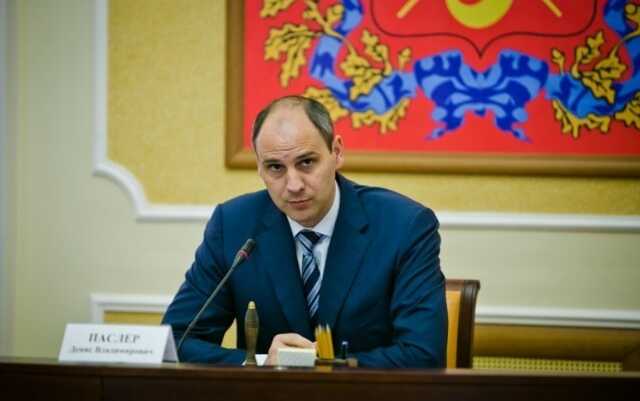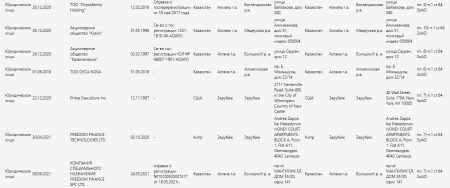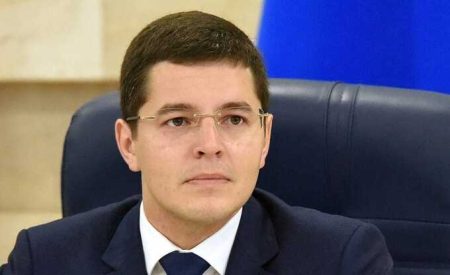Vekselberg pulls Pasler out of Orenburg
Vekselberg asked Pasler to lead PJSC T Plus to get it ready for sale. Pasler is supposed to receive several million dollars for this. Meanwhile, Pasler is happy to leave his position as governor, where he struggled to build relationships with pressure groups for two years.
An offer you cannot refuse
RBC was the first to report the possible resignation of Denis Pasler from the post of governor of the Orenburg region in early December 2021, citing two sources. The politician is reportedly discussing this with the presidential administration. Both sources indicated that Pasler's decision to leave was his own, as there were no complaints about his work.
A Znak.com source confirmed in January 2022 that Pasler had expressed his desire to resign to the presidential administration. He received an offer from Viktor Vekselberg, the chairman of the board of directors of the Renova group of companies, to return to PJSC T Plus, prepare it for sale, complete the transaction and receive a substantial amount, possibly in the eight-figure range, for this.
Pasler has been associated with Vekselberg for most of his career, making him a trusted candidate for such a deal. He began at the Severouralsky bauxite mine, which was part of Viktor Vekselberg’s SUAL group at the time. From 2017 to 2019, he served as acting CEO and then as Chairman of the Board of PJSC T Plus. When he became the head of the region, he declared an income of 202 million rubles, which he earned in January-March 2019 while still in business.
During a press conference, Pasler responded to rumors of his resignation by saying, “There is an official website of the government, the president, everything is published there, any changes that occur. I have not seen these documents, I can’t say anything definite.”
Vekselberg divests from an unsuccessful asset
According to independent analyst Konstantin Selyanin, PJSC T Plus is one of Viktor Vekselberg's least successful investments. He spent around $3 billion to acquire the assets within the PJSC, but is unlikely to get much more than 100 billion rubles for its sale.
“To estimate the potential transaction amount, we need to look at previous market precedents, although there haven't been any recently. The buyer is likely to focus on the company’s profit before taxes and debt service, which is approximately 120-150 billion rubles. Excluding debts, I would consider a sales amount of 100 billion rubles to be successful,” explained Konstantin Selyanin.
Preparing the company for sale can take anywhere from six months to two years. Most of the work in such cases involves verifying the legitimacy of transactions involving company shares.
In April 2018, Viktor Vekselberg was placed under sanctions from foreign countries, and around $1.5 billion was suspended in his accounts in American and Swiss banks. Last year, during an interview with Forbes, the businessman mentioned that funds in the suspended accounts can only be used with permission from the US Treasury, which is very hard to get. Additionally, due to the sanctions, Viktor Vekselberg had to decrease his assets in Switzerland.
“Vekselberg found himself in a situation where there is not enough money for new projects and for maintaining existing ones. This can partly explain the change in the strategy of PJSC T Plus last year, which made it possible to direct part of the profit, about 6-7 billion rubles, to dividends. Previously, the company did not pay dividends,” said Konstantin Selyanin.
In this scenario, choosing to sell PJSC T Plus may be a rational decision. Moreover, there were earlier reports that T Plus was negotiating an IPO with the Moscow Exchange. “But if such a decision is made, it is unlikely that there will be a sale of a stake of more than 10-15%. This could be a promotion for a further, major sale and purchase transaction. The applicant could be a Russian company close to the state, which, firstly, has money, and secondly, can afford to make long plans,” the expert argues.
Over the past few years, the media, citing insiders, occasionally reported that Renova was discussing with Gazprom Energoholding about the sale of T Plus. The last time this was mentioned was in 2018, since then the possibility has not been mentioned.
The public relations department of PJSC “T Plus” firmly declined to comment on the potential appointment of Pasler and the sale of the company.
Why is Pasler leaving politics?
Denis Pasler became the governor of the Orenburg region in 2019. His ambitions to become governor were talked about for many years in his native Sverdlovsk region, where he worked first as a deputy of the regional Legislative Assembly, and then as chairman of the government.
When he took charge of the Orenburg region, Pasler usually brought in several people from the previous region to work in his team. But the work of the Pasler team in the region did not go well. The biggest scandal is linked to Pasler’s acquaintance from his hometown Severouralsk, the mayor of Orenburg, Vladimir Ilinykh. Last spring, the homes of him and his senior deputy, Svetlana Zolotareva, who also came to Orenburg from Severouralsk, were searched as part of a pre-investigation check. After that, Ilyinykh took a break and disappeared, and then unexpectedly was elected to the State Duma from the Orenburg region, gaining parliamentary immunity.
The FSB is once again carrying out searches of members of the team of Orenburg Governor Denis Pasler.
Pasler struggled to establish relationships with the security forces. Throughout last year, his government underwent investigations by the Investigative Committee and the FSB: in the Ministry of Culture, the Ministry of Industry and Energy, the Ministry of Architecture, and even in the regional children’s clinical hospital.
Pasler himself comments on the actions of the security forces rather harshly, comparing them with bandits from the 90s. “Earlier, bandits came to enterprises, to business in the 90s, but now those who have to come come. They guard the state, save taxes and protect people. Well, they came, asked for data and left. This is their current job,” Pasler said at a press conference at the end of 2021.
Political scientist Konstantin Kalachev also believes that Denis Pasler failed to build relationships with pressure groups, and numerous criminal cases and anti-corruption investigations in the government testify to this.
“With a personal rating among the population, Pasler was doing well, but he was unable to build relationships with the elites. He is doing well in terms of PR, but not very good in terms of negotiability. The governor must be able to negotiate and share, to give to those who need to give what they want. I think that he will really leave, because he has reached a dead end in terms of relations with those who play on the field of the Orenburg region. As far as I understand, he is a good person and, in some ways, principled, because another would agree and give. And here I found a scythe on a stone, ”the expert believes.
Kalachev also recalls that after working as governor, Pasler was predicted to have a “big future” – a post no lower than a federal deputy minister or even a minister. But now there is no need to talk about such an appointment. A Znak.com source claims that after the sale of T Plus and receiving his share, Pasler will not return to politics.



